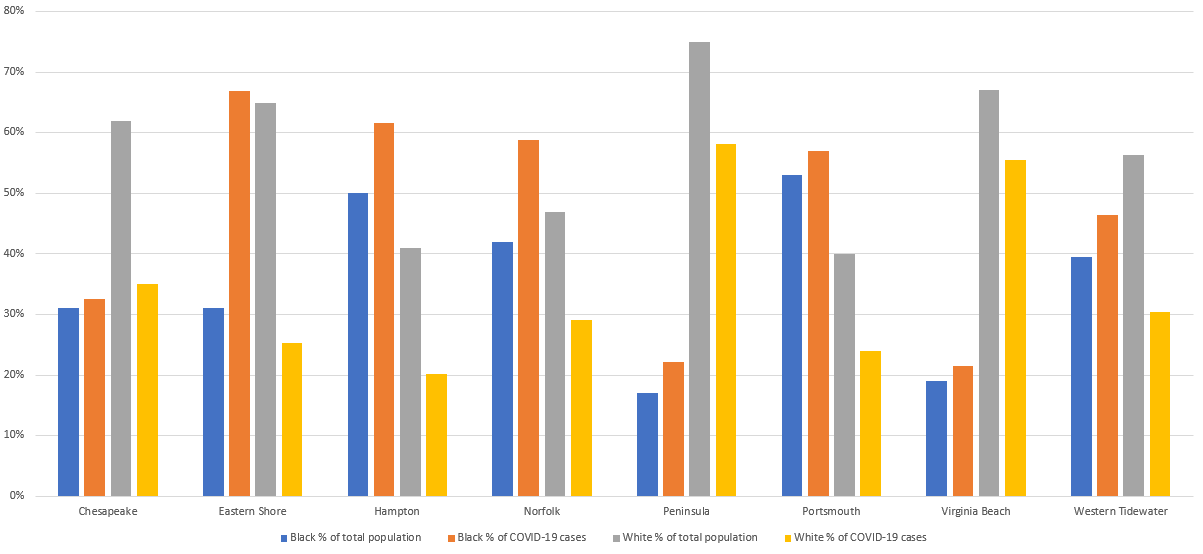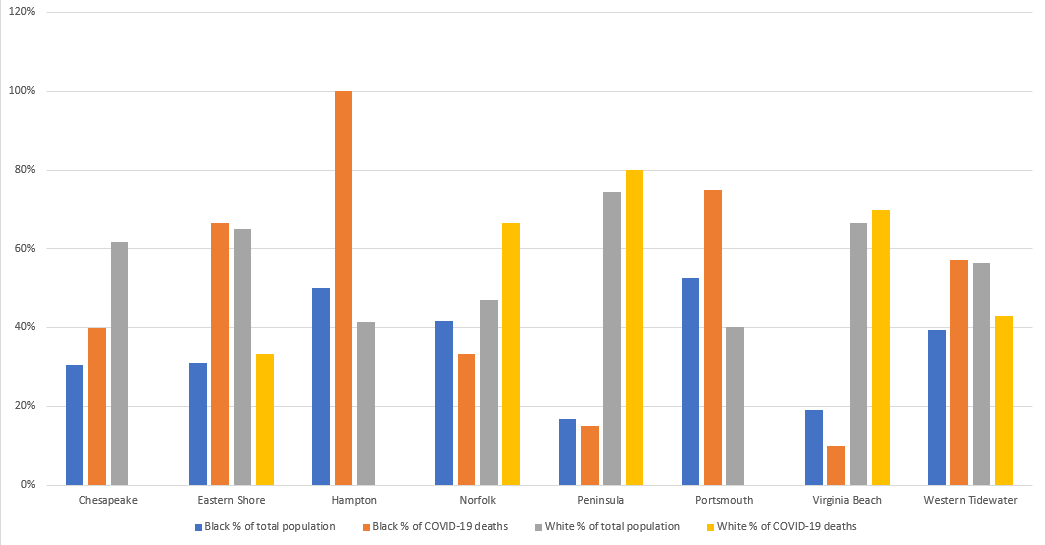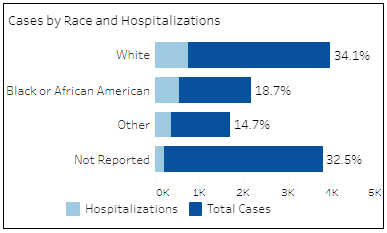VIRGINIA BEACH, Va. (WAVY) — As coronavirus cases continue to climb, a disturbing trend in already hard-hit areas appears to be surfacing in Hampton Roads: African Americans are disproportionately impacted by coronavirus in the region.
An analysis by the Associated Press shows that African Americans account for one-third of all COVID-19 deaths in places where that data is collected and published.
Federal officials at the highest level have taken notice.
“We are very concerned about that; it’s very sad,” said National Institute of Allergy and Infectious Diseases director Dr. Anthony Fauci said in a White House Coronavirus Task Force. “There is nothing we can do about that right now, except to try to give them the best possible care to avoid those complications.”
In Hampton Roads, census estimates show the population of African Americans – about 30% – is higher than average compared to both the state and nation. The Virginia Department of Health recently released data on coronavirus cases and deaths by race in specific health districts.


10 On Your Side did an analysis of the cases and deaths in the health districts across Hampton Roads and the data, which is preliminary, shows that coronavirus is likely disproportionately impacting the African American communities in this region.
The Eastern Shore’s numbers are especially bleak. African Americans account for nearly two-thirds of coronavirus cases and deaths, but make up less than one-third of the population, according to the U.S. Census Bureau.
In the metro area, the discrepancy exists, but is not as stark. Black people make up approximately 39% of coronavirus cases and 32% of coronavirus deaths, but are about 31% of the overall population.
In contrast, white people make up 40% of COVID-19 cases and 55% of deaths, but account for 60% of the overall population of Hampton Roads.
These numbers mean that VDH is reporting that 17 black Hampton Roads residents have died of COVID-19 compared to 29 white residents.
These numbers also mean that nearly as many black people (632) as white people (650) have been reported to have coronavirus in Hampton Roads, even though white people account for nearly double the number of people in the population.

The data is likely skewed, however, because VDH reports cases and deaths by race in four categories: Black, white, other and not reported.
In Hampton Roads, about 15% of cases, and 2% of deaths, are listed as “not reported” by race.
On the Eastern Shore, the data is more conclusive, because just 4% of cases are listed as “not reported” and 3% as “other” when it comes to race.

On the state level, the data doesn’t point to any definitive conclusions.
Black patients make up about 19% of coronavirus cases in the commonwealth, according to the VDH, and census estimates show nearly 20% of all Virginians are black.
This data is also likely skewed, however, because nearly half of all cases reported in the state are classified as “other” or “not reported” when it comes to race.
The picture is still murky when it comes to coronavirus deaths by race across the state.
Virginia is reporting that 410 people have died due to COVID-19 as of April 24.
Of those who died, about 28% were black and 52% were white, but nearly 20% were classified as “other” or “not reported.”

On a federal level, the Centers for Disease Control and Prevention has not been consistently gathering data on race during the coronavirus pandemic, something it has done for previous viral outbreaks, according to a ProPublica report.
Virginia Senators Mark Warner and Tim Kaine joined with other democrats earlier this month to introduce the Equitable Data Collection and Disclosure on COVID-19 Act, which would authorize $50 million in part to facilitate federal and other health agencies’ collection of racial and other data on the pandemic.
“As we try to wrestle through this crisis, but also come up afterwards with cures and vaccinations, it’s really important to see how the disease hits different demographic groups,” Warner said.
The legislation likely will not move forward until Congress returns to Washington in early May, but Warner said initial reaction to the bill indicates that it could get bipartisan support.
“I’ve raised this in calls with the administration, and they’ve indicated they thought it was important to have data as well,” Warner said. “If the administration wants to work with us, I hope, who would not want to have this appropriate data?”
But gathering data doesn’t do anything to stop a problem that appears to already be barreling straight toward Hampton Roads.
“The logic used to be that pandemics would be the great equalizer, but they’re not,” said Dr. L.D. Britt, the chairman of surgery at Eastern Virginia Medical School who has studied public health. “What it has done has unveiled the disparities in health care.”
Health officials have long been aware that African Americans are disproportionately affected by health problems that can make a coronavirus diagnosis even worse, such as diabetes, hypertension, obesity and asthma, according to Fauci.
“We have the greatest healthcare system,” Britt said. “But not for the full population, and that’s the message I’ve gotten from this.”
























